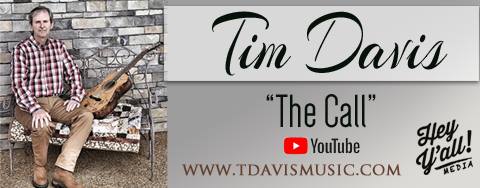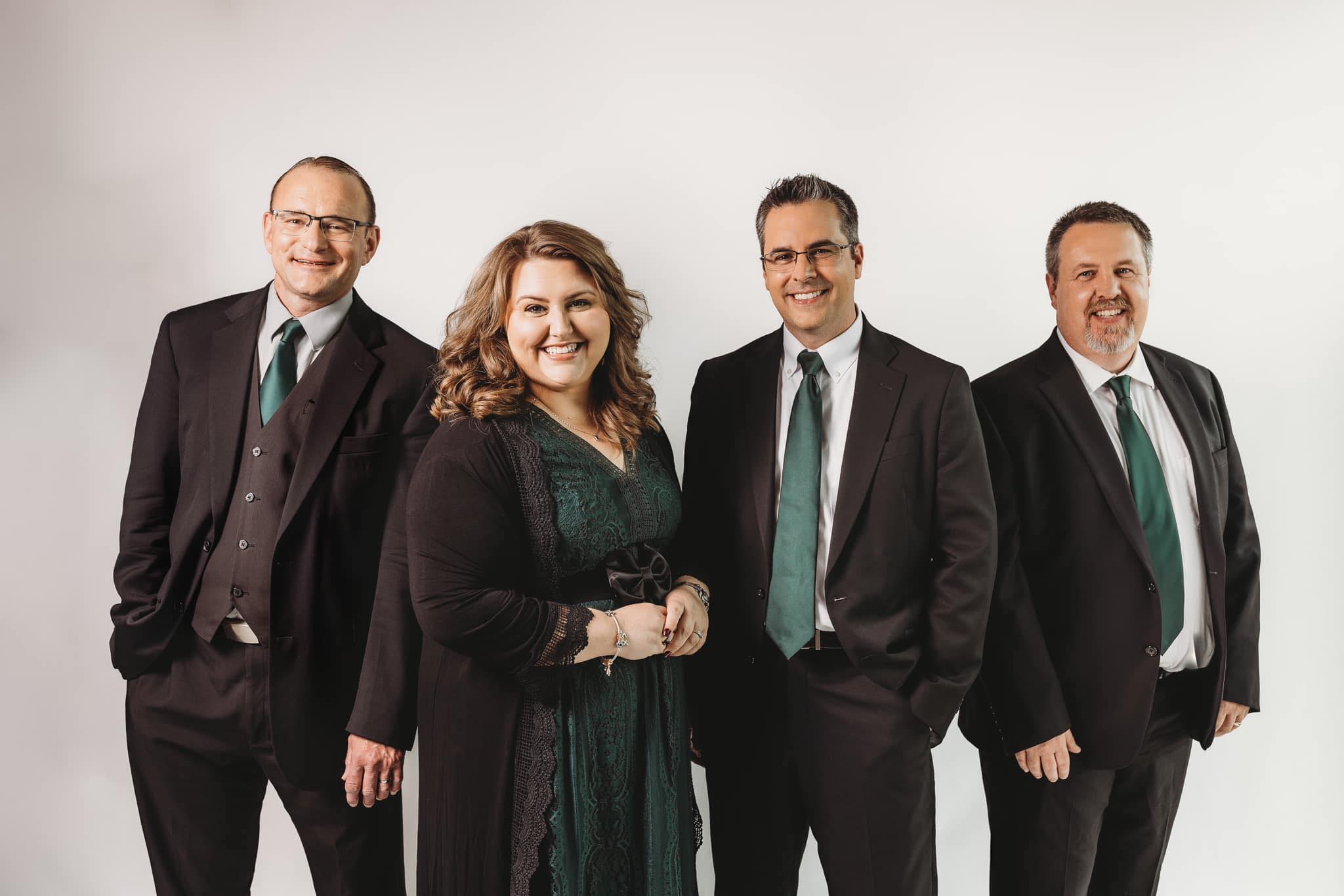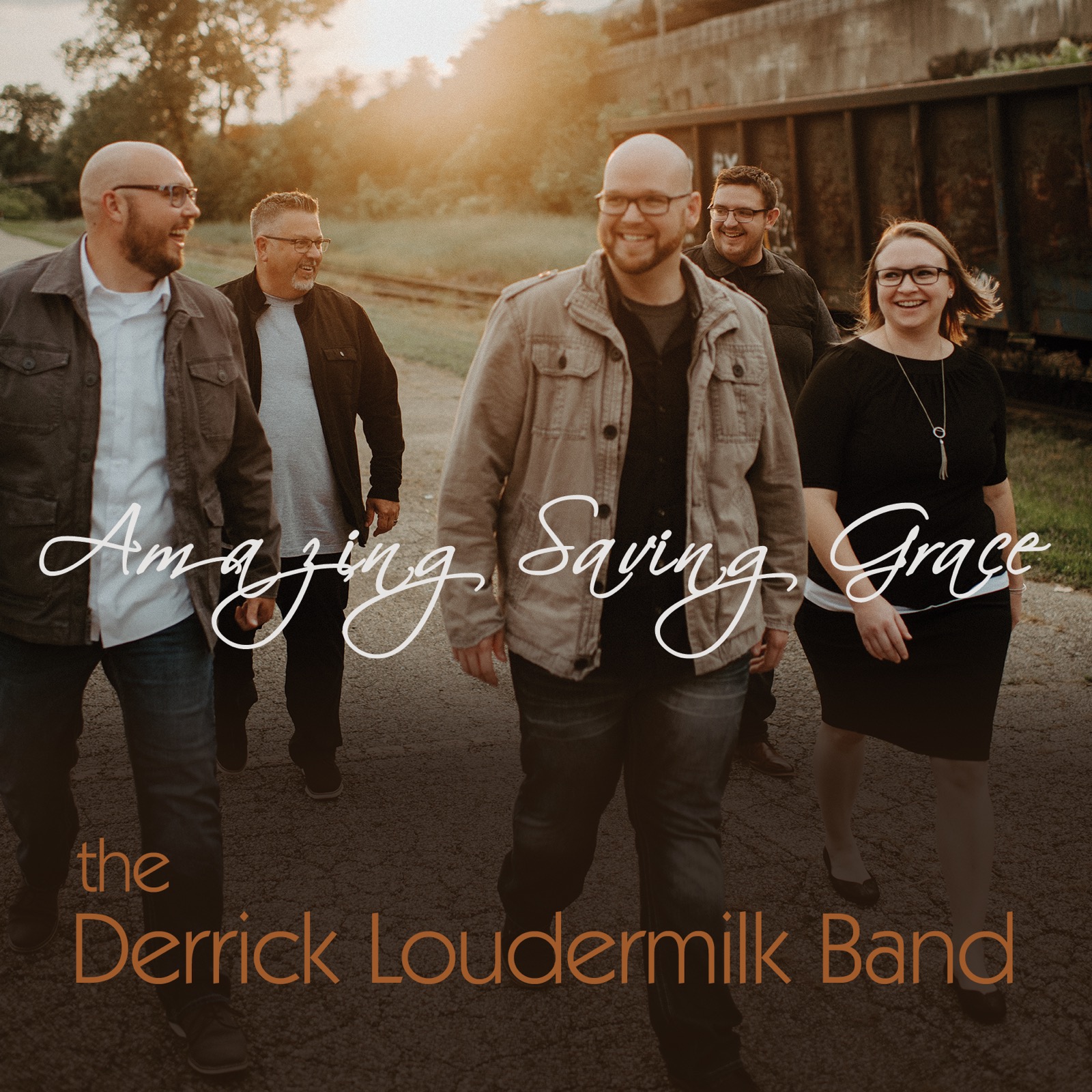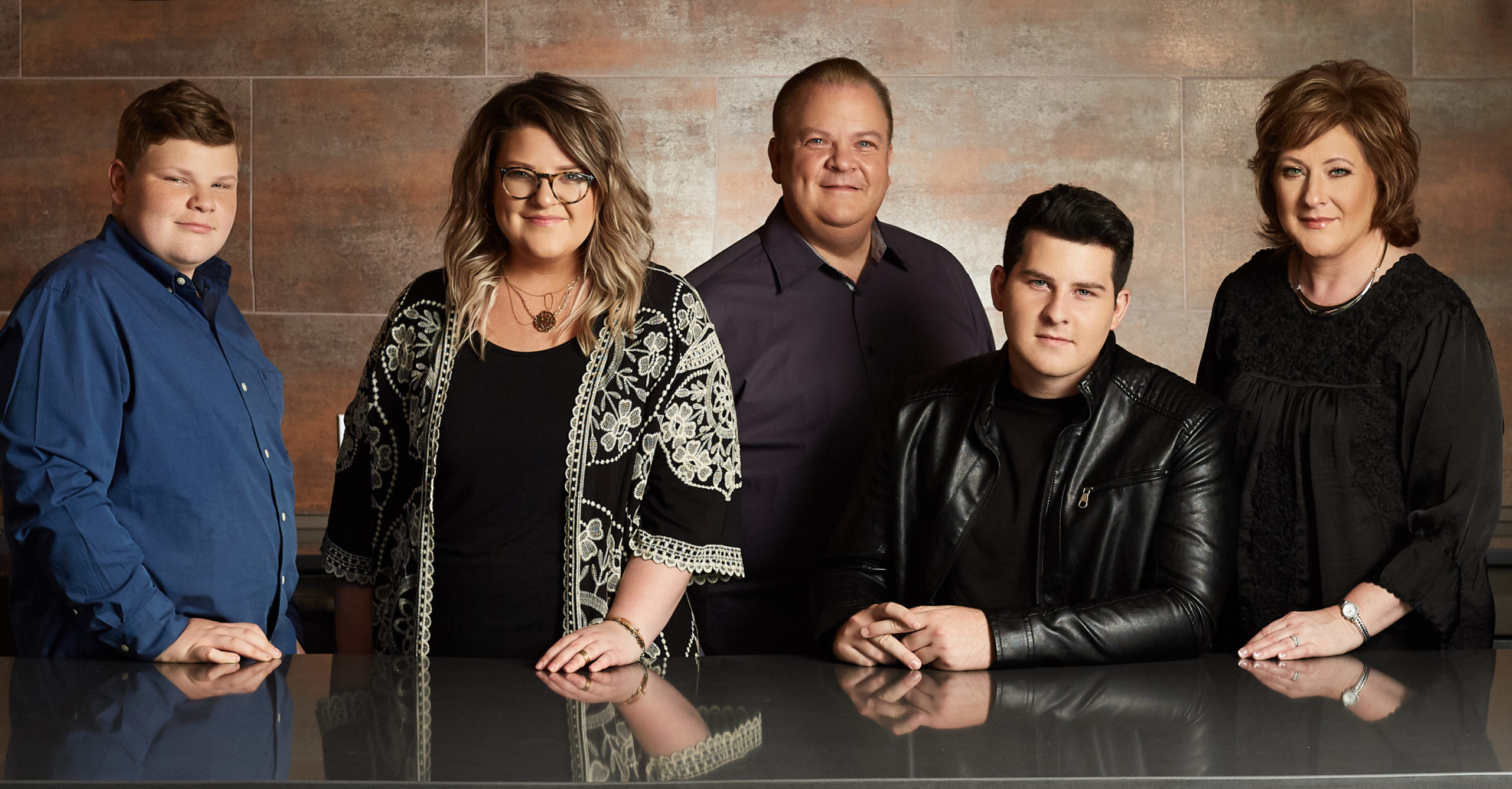 Beyond the Song with Jantina Baksteen
Beyond the Song with Jantina Baksteen
We all know Bob Sellers who sang with the Kingsmen. As Bob stepped down to start a solo career, I kept in contact with Bob and interviewed him about his solo career.
Jantina Baksteen: You grew up in a Christian home. Could you share a little memory of the time you got saved?
Bob Sellers: I was fortunate enough to have been raised by wonderful, Godly parents. If the church doors were open, we were there. We were there for Summer Revival 1984, when I was just eight-and-a-half years old, and although I don’t remember the sermon or the song, I very vividly remember kneeling in repentance and asking Jesus to come into my heart. My grandfather, Rev. Paul Sellers, who remains such a huge part of my testimony, was my pastor, and Rev. Jackie Adcox, was the evangelist. Before he was saved, my grandfather was an alcoholic. After he was saved, he never had the urge to drink again, and he surrendered to the call to preach the gospel just a few years later. Â
JB: When did you discover your interest in singing?
BS: I don’t really remember, because I’ve been singing all my life. I grew up singing with my mother, Helen, and sister, Stephanie, in a little church trio. Mom played piano by ear, so she’d hear a song on gospel radio that she liked and she’d learn to play it and teach us our parts. Mom was a stickler, so it had to be correct. I think that played a big role in developing my ear for harmony. I hit a really shy stage in my tweens and teens however and quit singing altogether. I got back into it thanks to the urging of my late mother-in-law, Becky, once she found out I could sing a little. She was always a huge supporter of mine, and I owe a big part of my marriage and my career to her.Â

JB: A long time ago you started your own first group called Capstone Quartet. What age were you and who were your singing buddies?
BS: I was actually hired in that group in the early 2000s, and that was my first quartet. I had hair! It was begun in 1992, in Tuscaloosa, (home of the University of Alabama campus known as “The Capstoneâ€) by Joe Brown and Charlie Howard. A few years later, I wound up owning the group through attrition. Joe Brown hired me, so I still give him a lot of credit for my start in gospel music and he’s still one of my best friends in the world. That first lineup consisted of myself at lead, Joe on bass, Dale Taylor at tenor and Jimmy Latham at baritone. The lineup right after that, which included Danny Scott on baritone, recorded an album at Crossroads Studios in Asheville, N. C., and really set a new bar for that quartet from a sound perspective. The final lineup that I was a part of was myself, Dave Ezell (baritone), Dave Waldrep (bass) and Kevin Hodges (tenor). I have a lot of great memories from my Capstone days and many of those guys are still some of my best friends.Â

JB: I read your influence groups were the Cathedrals, Gold City and Kingsmen. How was it to receive that call to join the Kingsmen, the group that influenced you in your early years?
BS: Oh, it was just as surreal as one might imagine. The year after my grandfather passed away, I promoted a gospel concert called The Rev. Paul Sellers Memorial Sing, which was sponsored by my home church, and was going to help towards the down payment on a new fellowship hall (we hoped). I emailed dozens of gospel artists asking for a reduced flat for a Saturday night concert to help us with our goal, and the Kingsmen was the only group willing to come for what was probably half of their normal Saturday night flat. I certainly never forgot that, and I started to really keep up with them whenever they were in this area, and got to know some of them individually through social media. Bryan Hutson asked me to fill in for him in south Alabama one Thursday night, and I thought my life had been made. My whole church and family came down to see me get to sing one night with the Mighty Kingsmen, and it was a dream come true. Little did I know that about a year later, they would need a lead singer, and it still humbles me that I was the first call Ray Reese made. Other than my salvation, my marriage and the birth of my children, it was the greatest thing that ever happened to me.Â
JB: What wise lessons did you learn traveling with Hall of Famer Ray Reese of the Kingsmen?Â
BS: That is actually an easy question for me to answer. The one lesson that Ray taught me over any others, is to trust the Lord. And it wasn’t anything he ever told me, but what he showed me in his daily actions. The best example I can think of came in Westfall, Ohio. We were there singing at the high school when the transmission literally fell out of the bus. We had to be towed all the way back to Asheville from there and after it was all said and done, I think the bill for that and a new transmission was around $25,000. If I’d have owned the group and been responsible for the bus, I think I’d have had a heart attack right there, but Ray was cool, calm and collected. He said (as he often would whenever adversity came), “Boys, these things just happen. We will just trust the Lord to help us get it fixed and paid for and go from there doing what God has called us to do.†And he was just always low-key and even-keeled like than no matter what ever happened. After his wife Carolyn passed away, I’d witness him crying alone in the front lounge of the bus and calling her phone repeatedly just to hear her voicemail message, but then I’d witness him get himself together, get dressed and go do what God put him here to do, which was, sing the gospel and put a smile of other people’s faces. That made a huge impact on me, since I was (and probably still am) a lot more high strung when everything doesn’t go just right.Â
JB: You experienced some shyness in your early years. How did you overcome this?
BS: All I can say is that God helped me to overcome that. There was a stage in my life when I would literally turn three shades of red if something happened like a girl approached me or someone teased me about something. I wanted to drop out of college when I found out that Public Speaking was a prerequisite and I’d have to give several speeches in front of the class throughout the semester. I couldn’t have gotten up in front of 10 people to talk without being a ball of nerves, much less sing in front of 18,000 at Freedom Hall. When I got back into singing in my 20s, I truly believe it was a calling from God, and, as the old saying goes, I believe it’s true that “He equips the called.”
JB: What advice would you give artists who deal with the same issue, to overcome stage fright?
BS: Imagine the audience in their underwear. I’m kidding. I’ve heard that one before and always thought it was ridiculous. I’d say just pray about it and try to relax. Don’t worry so much about who’s in the audience or how many are in the audience. Focus on the things you can control, and on working to be the best you can possibly be, each and every time you step on stage. When you are your biggest critic, what other people think will be secondary, and when you aren’t so worried about what all the people looking at you think, then you won’t be as nervous or shy.

JB: What made you resign from the Kingsmen?
BS: The Kingsmen was the first full-time singing job I’d ever had, so I didn’t really know what to expect. I loved most things about it, but found that the one thing I didn’t love about it, was being away from my family so much. After six or seven years, I realized that my kids were still babies when I started, and suddenly they were about grown and it felt like I’d missed it all. The reality is, I did miss a lot of it. I lived 480 miles from the bus, so for a typical week, I’d leave on Wednesdays about 2:00 p.m. to get to Asheville by midnight, and I’d get home sometime on Monday of that next week. The only day I could really count on being home was Tuesday, and as sure as I planned something, it seemed we’d end up being on the road even then. I had an experience with my son that last year of my tenure that really affected me. It wasn’t really a big deal; he just had this huge meltdown when I went back on the road after my summer vacation of being home a couple of weeks, and that’s really when being gone so much began to eat at me. I didn’t want to leave. I told Ray when I gave my notice that if he could slow down to about 100 dates a year and could still afford to pay us, he’d never run me off, but that’s just not a reality. It’s not his fault, it’s just the nature of the business. Groups with a bus, payroll for six or seven people, etc., in this day and time of fewer ticketed events (or “flatsâ€), just about have to sing every opportunity they get. I prayed about it a long time and got the peace I needed one day while painting a bedroom. My line where the wall met the ceiling was shaky and I was trying different methods to help get it straight. I finally figured out that if I looked just ahead of the brush, then my line would be straight. I’d been praying that whole day and at that time, Proverbs 3:5&6 came to me: “Trust in the Lord with all thine heart. Lean not unto thine own understanding, but in all thy ways acknowledge him, and he shall direct thy paths.†Just as sure as the day I was saved, the Holy Spirit spoke to my heart and told me that my life was just like my painting technique. I had to quit worrying about where I was or where I’d been, and put my future in God’s hand and he’d set everything straight, just like the paint line on that wall. That’s when I decided to resign. Thankfully, I was able to leave on good terms, and I still count Ray and Brandon Reese as dear friends, as well as Randy Crawford, Chris Jenkins and everyone associated with the Kingsmen organization.Â

JB: How did you get to join the Old Time Preacher’s Quartet?
BS: Les Butler called me about two days after my announcement to leave the Kingsmen was made on Facebook. He said that he’d just told his wife the week before, that if I ever left the Kingsmen, he was going to ask me to sing lead with the Old Time Preachers Quartet. My first thought was that I didn’t want to be one of those who left one group “to spend more time with his family,†just to jump to another group the next week. I wanted to avoid that image, but more than that, I really wanted to spend more time with my family. I also had determined at that point to try my best to establish a solo ministry. I shared all that with Les and we talked a lot after that. After more talk and praying about it, eventually it seemed like the right thing to do. After all, the plan was to sing only 50-60 dates a year (about one weekend a month). I felt like that would be a good way to scratch the quartet itch and have some weeks that I didn’t have to fill with solo dates. I did wait five or six months, but after the first of 2019, we made it official. Those are great guys, also. We had a good run and made a good album, but the dates picked up to over 100 a year and balancing both my solo schedule and the quartet’s schedule eventually became too much.Â

JB: For a couple of years now, you’ve traveled as a soloist and recently brought out your first solo album since leaving The Kingsmen, “Wonderful Story of Love.†Please share how this project came together?
BS: I first thought about doing an album of all original songs and then another one of songs I’ve been singing a while but had never had a chance to record, but I already had one that’s a collection of my gospel favorites, “Preludes.” In the end, I just decided to mix it up on the new album, so I put a few of those favorite songs on there and added a few originals or relatively current hits. The songs as a collection bless me, and I pray that they’ll bless others. That’s all that I what I want my music to always do.Â
JB: You’ve put out a solo by the same name, “Wonderful Story of Love,” to radio. What’s the message of the song?
BS: “Wonderful Story of Love,†is a great song by Lee Black and Gina Boe. I had actually placed this song on hold when we were looking for songs for the last Kingsmen album of which I was a part. It didn’t make our final cut. (When you’re with a label, you pick a few songs and they pick the others…with publishing carrying a lot of weight. I’m independent, so I could cut whatever I wanted to!) The message in the song is pretty much my personal commitment to God to sing His praises – “The Wonderful Story of Love†– for as long as I have breath and He will equip me for it and open doors. After I cut the song, I realized the feel of it vaguely reminded me of Battle Cry (which was also a co-write of Lee Black’s), which was such a huge song and album for The Kingsmen. It’s an upbeat, feel-good song, but don’t miss the message – “I will sing of the wonderful story, I will tell of his love so great; I will shout ‘til I’m home in glory, when I’ll sing a new song of praise to the Lamb who was slain, the King who will reign, the Author of this wonderful story of love!â€
JB: Have you ever tried to write your own song?
BS: Yes. I’ve tried and so far I have failed miserably. I think I have some good ideas sometimes, and come up with some pretty good hooks every now and then, but I definitely think I would make a better co-writer, if anything, than writer. I have been blessed with a pretty good ear for recognizing good songs, (I brought “Battle Cry,†among others, to the Kingsmen and had placed a hold on another song that also didn’t make our final cut called “Come Sunday Morning,†which turned out to be pretty good for The Old Paths). When listening to demos that I’m not particularly sold on, I sometimes find myself re-writing lines in my head. Who knows if that would make them better or worse, because the verdict is definitely still out on that one!Â
JB: Have you ever experienced violence during a concert, and if so, how did you handle that?Â
BS: Congrats! You are the first to ever ask me that question in an interview like this! (Laughing!) That’s an interesting question for a gospel music interview. As for an answer, thankfully no, I’ve not experienced any violence during a concert, at least not yet. Hopefully I can retire one day and still answer this the same way. Interestingly enough, I did get somewhat verbally assaulted one night during my record pitch for the Kingsmen when talking about the Singing At Sea gospel cruise we took every year. To this day, I don’t know what the man thought I said or what, but a guy stood up in the audience and just started railing me out over it. I finally said, “Sir, I’m trying to do a product pitch here, would you please be quiet!?†Again, I don’t have any idea what he got the bee in his bonnet about, but it took some big ole’ guys from the audience actually physically removing him from the building to settle him down. Some strange things can certainly happen.Â
JB: If you’re not traveling, what do you for work, and where do we find you in your off time?
BS: If I’m not traveling working, I’m at home working so that I keep traveling. Mondays are usually office days when I do my books, go to the bank and try to return any missed emails or phone calls from the weekend. Later in the week, I’ll send off any product orders I may have, do radio liners, interviews, social media updates, website updates, DJ follow-ups, product inventory, pay bills, keep up with stats and insights on different sites, update my newsletter subscribers, etc. Then, of course, a large part of my time is spent thinking about who, from a logistics standpoint, I can contact about a specific date that I need to fill. That is a full-time job in and of itself. Whether I am eating breakfast, working around the house, watching the news, laying in the bed or whatever, the wheels are always turning. I still manage to create plenty of off-time for myself, as well. That’s when you’ll usually find me either with my family or fishing. For years, I didn’t have much off time, so now I fish a lot. Getting out and enjoying God’s creation, especially on water, is my therapy.

- Bob Sellers with Old Time Preacher’s Quartet
JB: You‘ve shared once that you had your earplugs in when you’re not traveling with a group, with the sound of white noise to fall asleep. Are you still using that?
BS: When I was on the bus, I usually put in earplugs and had some noise playing on a Bose speaker by my head. It was supposed to be the sound of an engine of some sort. We kept it cold on our side of the bus and it was usually about 58 degrees in my bunk. So I was wrapped up to the top of my head with a sheet, fleece blanket and a thick comforter had that noise going which blocked out anything, and rocking to the bus motion…that was the best sleep in the world and probably one of the things I have missed most about road life. And of course, we stayed up half the night and slept half the day, because there was nothing much else to do inside a bus. So now I usually get up when my wife and kids leave for school. And I have a fan and light blocking curtains in our bedroom, but it’s not the same. I certainly don’t sleep with earplugs and block out the world, because I’m afraid I might sleep through an emergency or something. It took me many months after coming of the bus to be able to get a decent night’s sleep!
 JB: How do we get hold of you to sing at a church service or concert?
JB: How do we get hold of you to sing at a church service or concert?
BS: I try to book every Sunday morning and every Sunday night that I can. I live in west-central Alabama, and if overnight travel is required, I try to book additional nights that week. I don’t have a set charge for any church service. Someone asked me recently how I’m able to do that and still make a living. All I can say is that’s just how I’ve done it since I started solo, and God has always met my financial needs. I also work hard to keep my overhead and expenses low. To book me for a church: I’d love to go any place that would love to have me! I can be reached by phone at (205) 331-9997 or email at office@bobsellersministries.com or through social media. On Facebook, find me at Bob Sellers Ministries. On Twitter, Instagram and YouTube – @BobSellersSings.Â
Website HERE.
We hope you enjoy “Wonderful Story of Love” by Bob Sellers:
Thanks so much Bob for sharing your ministry with SGNScoops. Blessings on your ministry, as you share the good news with the ones who need encouragement, and with those who have never heard the gospel of salvation.

By Jantina Baksteen
Jantina Baksteen is a gospel music writer and regular contributor to SGNScoops magazine and website.
Jantina Baksteen – biography:
I live all the way overseas in the Netherlands. I’m married and I have three adult children.
I grew up in a Christian home and knew in my early years that I wanted to belong to Him. I surrendered my life to Christ was baptized one day before I turned 11 years old.
Somehow, the seed of loving gospel music was planted by the style of music my parents played at home. Around 2006/2007, I was listening to Gaither homecoming music that I found on the internet. The song, “Oh, What A Savior,†by Ernie Haase hit me with the so-called Southern gospel bug.
From there, I’ve been reading /studying all I can find. I found the digital SGNScoops Magazine.
As I was spending so much time reading and listening about this industry, I started praying for God to please give me a job in the Southern gospel industry. Sometimes, I commented to Lorraine Walker on her posts. How could she know the longing of my heart?
But last year she asked me if I wanted to do something for SGNScoops: the Wacky Wednesday posts online. Now I do the “Beyond the Song†article that really has my heart as I am reaching out to artists, asking about a current song and having a sneak peak behind the scenes.
Phone Friendly SGN Scoops Magazine Here
Find SGN Scoops Magazine On Facebook Here
Download SGN Scoops Magazine PDFÂ Here
Listen To Todays Southern Gospel Here
Â



